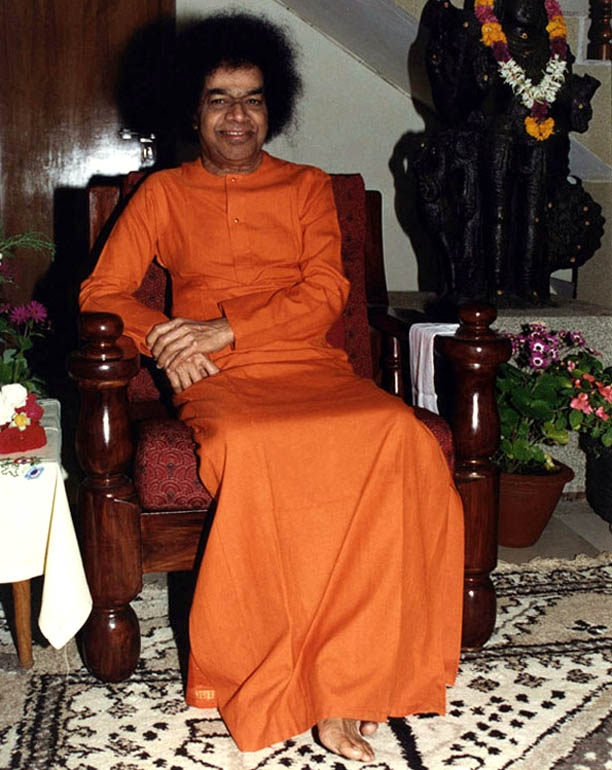 May 21 to be the World Day for Cultural Diversity for Dialogue and Development. Covid-19 had had significant impact on Cultural Diversity, Dialogue and Development. We look to the origin of this day, and what Sri Sathya Sai Baba tells about culture.
May 21 to be the World Day for Cultural Diversity for Dialogue and Development. Covid-19 had had significant impact on Cultural Diversity, Dialogue and Development. We look to the origin of this day, and what Sri Sathya Sai Baba tells about culture.
Impact of COVID-19 on the Cultural Sector
Cultural events cancelled, cultural institutions closed, community cultural practices suspended, empty World Heritage sites, heightened risk of looting of cultural sites and poaching at natural sites, artists unable to make ends meet and the cultural tourism sector greatly affected… The impact of COVID-19 on the cultural sector is being felt around the world. This impact is social, economic and political – it affects the fundamental right of access to culture, the social rights of artists and creative professionals, and the protection of a diversity of cultural expressions.
Why does cultural diversity matter?
Three-quarters of the world’s major conflicts have a cultural dimension. Bridging the gap between cultures is urgent and necessary for peace, stability and development.
Cultural diversity is a driving force of development, not only with respect to economic growth, but also as a means of leading a more fulfilling intellectual, emotional, moral and spiritual life. This is captured in the culture conventions, which provide a solid basis for the promotion of cultural diversity. Cultural diversity is thus an asset that is indispensable for poverty reduction and the achievement of sustainable development.
At the same time, acceptance and recognition of cultural diversity – in particular through innovative use of media and Information and Communications Technologies (ICTs) – are conducive to dialogue among civilizations and cultures, respect and mutual understanding.
Origin and purpose
In 2001, UNESCO adopted the Universal Declaration on Cultural Diversity. and in In December 2002, the UN General Assembly, in its resolution 57/249, declared May 21 to be the World Day for Cultural Diversity for Dialogue and Development, and in 2015, the Second Committee of the UN General Assembly unanimously adopted the resolution on Culture and Sustainable Development A/C.2/70/L.59, affirming culture’s contribution to the three dimensions of sustainable development, acknowledging further the natural and cultural diversity of the world, and recognizing that cultures and civilizations can contribute to, and are crucial enablers of, sustainable development.
The day provides us with an opportunity to deepen our understanding of the values of cultural diversity and to advance the four goals of the UNESCO Convention on the Protection and Promotion of the Diversity of Cultural Expressions adopted on 20 October 2005:
- Support sustainable systems of governance for culture
- Achieve a balanced flow of cultural goods and services and increase mobility of artists and cultural professionals
- Integrate culture in sustainable development frameworks
- Promote human rights and fundamental freedoms
Sri Sathya Sai Baba
What is the meaning of vyakti? We call the body or individual vyakti. Vyakti denotes the hidden sacredness, the Divinity within, which must always be expressed and only then can one be called a true individual. The behaviour of an individual should be proper, having good conduct as the main quality. From the Divine perspective (Atma), the whole of humanity is one and the same with no differences. There is only one caste, the caste of humanity. Father, mother, caste and creed have as the basis the one Atma though we have different cultures based on the regions or environments, visions or habits. We must conduct ourselves according to our environment. For example, one would use a woollen coat while visiting the cool hill-station region to keep warm whereas in a region like Andra Pradesh (in South India), one has to wear cotton clothing to remain cool. April 9, 1996
Culture and its Meaning
What is Culture? Anything that is processed is called Cultured. Culture refers to the process by which you transform an object from a raw form to a particular form which is useful and has value. Whatever object you take, you cannot enjoy it without transforming it or processing it. For example, cotton in its raw form will have seeds and will have less value. If you remove the seeds and process it into cloth, the cloth then becomes useful. The value of cloth is greater than the value of raw cotton. The name, form and value change. The real culture refers to the process by which you make a valueless thing into valuable things in order to use and enjoy. We have raised paddy crops. We can’t use paddy in its raw form. We have to remove the husk, cook and prepare it. Hence when the form changes, the value also changes. The cost of a sack of paddy is less than the cost of a sack of rice. The culture imparted to paddy has raised its value. We have to add value so that it becomes useful.
In examining culture, an important aspect is recognizing the individuality of a person. The second aspect is developing the society. The third aspect is experiencing Divinity. The fourth is living in unity. Integrating these four aspects is Culture, it is the development of human flourishing.

![]()

